Search
Search Results
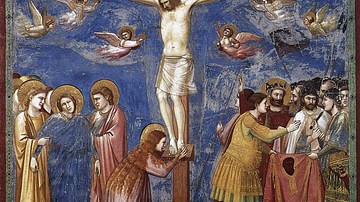
Definition
Crucifixion
Crucifixion as a punishment was practiced by several ancient cultures, but most notably adopted by the Roman Republic and later Roman Empire. Crucifixion was a method of hanging or suspending someone on the combination of vertical and horizontal...
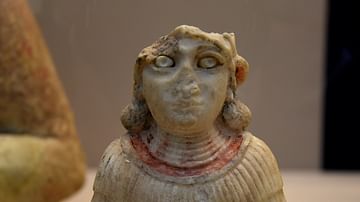
Article
Ten Great Ancient Mesopotamian Women
The lives of women in ancient Mesopotamia were regulated by a patriarchal hierarchy, but within this social structure, there were many who distinguished themselves and some who were able to assume positions traditionally held by men. Women...
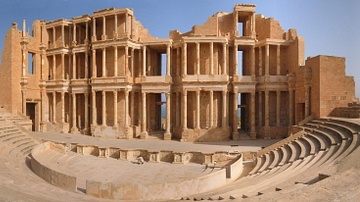
Definition
Sabratha
Sabratha was an ancient port city on the coast of North Africa (in modern-day Libya). The site was originally inhabited by the indigenous Berber Zwagha tribe in the 8th century BCE (according to the 11th-century CE historian al-Bakari) who...

Definition
Susa
Susa was one of the oldest cities in the world and part of the site is still inhabited as Shush, Khuzestan Province, Iran. Excavations have uncovered evidence of continual habitation dating back to 4395 BCE but that early community grew from...

Image
Colonial Woman Spinning Cloth
A colonial woman spinning in the kitchen. Illustration from A Brief History of the United States by Joel Dorman Steele and Esther Baker Steele, 1885.
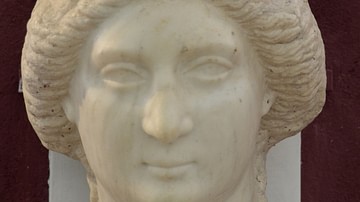
Article
Twelve Great Women of Ancient Persia
Women in ancient Persia had more rights and greater freedom than any other ancient civilization including, according to some scholars, even ancient Egypt which is famous for its respect for the feminine principle in religion as well as daily...

Video
Greek Curses
Dr Esther Eidinow speaks about Greek inscribed curses, c.6th-1st centuries BCE,
Greek and Roman Curses - presented by the Hellenic and Roman Societies - 17 March 2015

Definition
Xerxes I
Xerxes I (l. 519-465, r. 486-465 BCE), also known as Xerxes the Great, was the king of the Persian Achaemenid Empire. His official title was Shahanshah which, though usually translated as `emperor', actually means `king of kings'. He is identified...
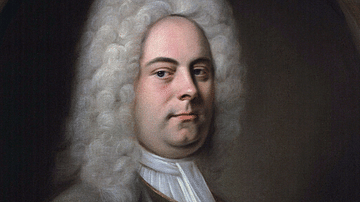
Definition
George Frideric Handel
George Frideric Handel (1685-1759) was a composer of baroque music who was born in Germany but became an English citizen. His most famous works include his Messiah, Water Music, baroque Italian operas, and English oratorios. A hugely successful...

Definition
Queen of Sheba
The Queen of Sheba is the monarch mentioned in the Bible and then in later works who travels to Jerusalem to experience the wisdom of King Solomon (c. 965-931 BCE) of Israel first-hand. The queen is first mentioned in I Kings 10:1-13 and...